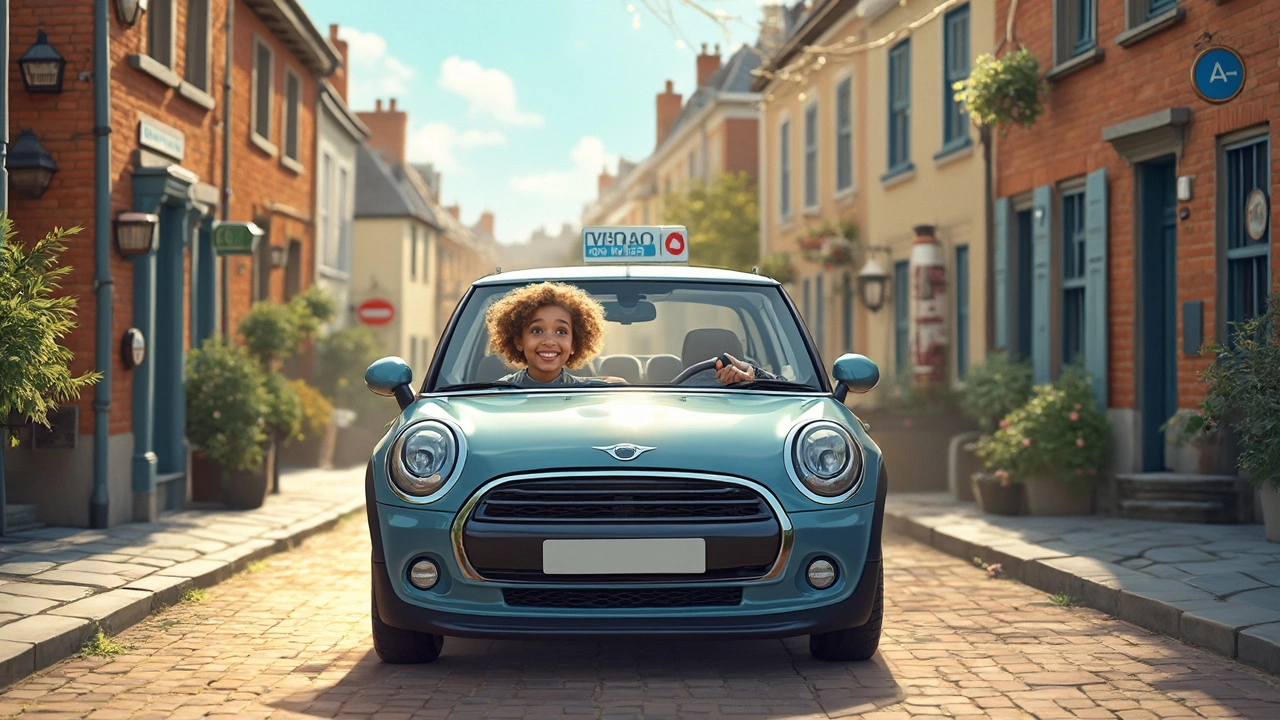First Driving Experience: How to Stay Calm and Keep Moving Forward
Getting behind the wheel for the first time can feel like stepping onto a stage without a script. Your heart races, thoughts collide, and you wonder if you’ll even make it through the lesson without a panic attack. The good news? You don’t have to wing it. A few simple habits can turn that nervous energy into steady confidence.
Prep Before You Sit in the Seat
Preparation starts long before you turn the key. Spend 15 minutes reviewing the basics – clutch control, brake feel, and steering grip. Watch a short video of a beginner lesson or read a quick checklist. Knowing what to expect reduces the surprise factor that fuels anxiety.
Eat a light snack an hour before your lesson. Foods like a banana or a handful of nuts keep blood sugar steady, helping you stay alert without feeling jittery. Hydrate, but don’t overdo it – a sip of water is enough.
Pick comfortable clothing. Loose jeans and a t‑shirt let you move freely, and sensible shoes (flat, not high‑heels) give you better pedal control. Small details like these remove unnecessary distractions.
During the Lesson: Simple Actions That Make a Big Difference
When the instructor says “start,” take a deep breath in, hold for two seconds, then exhale slowly. This tiny pause signals your brain to shift from fight‑or‑flight to focus mode. Keep your grip on the steering wheel light – imagine you’re holding a bird, not a hammer.
Break the drive into bite‑size tasks. Instead of thinking “I have to master the whole car,” focus on one skill at a time: first, smooth clutch release; next, maintaining a steady speed. Celebrate each mini win with a quiet “good job” in your head.If you feel a mistake coming, remind yourself that errors are part of learning. Say, “I’m okay with a slip‑up, I’ll fix it.” This reduces the fear of failure and keeps the lesson flowing.
Ask questions whenever something feels unclear. Instructors expect curiosity and will often repeat a maneuver in a different way, which reinforces learning.
After the lesson, jot down three things that went well and one area to improve. This reflection turns experience into progress and gives you a clear focus for the next session.
Remember, the first driving experience isn’t about perfection. It’s about building a habit of calm, learning how the car reacts, and proving to yourself that you can handle the road. With the right prep, a steady breathing routine, and a mindset that treats mistakes as feedback, you’ll walk away from that first lesson feeling more in control and ready for the next step – whether that’s another lesson, a mock test, or the real driving test.
- March 3 2025
- 0 Comments
- Rowan Cavendish
Are First Driving Lessons Hard?
First driving lessons can be a mix of excitement and nerves, leaving many wondering how hard they really are. New drivers often face challenges like understanding basic car controls and traffic rules, but these can be overcome with practice. The key is remaining calm and attentive, and selecting the right driving instructor. With the right approach and mindset, first lessons are just the start of a confident driving journey.
- Driving Lessons (43)
- Driving Test Tips (34)
- HGV Training (32)
- Driving Test Booking (28)
- Driving Licence Renewal (26)
- Driving Theory Test (22)
- Intensive Driving Course (20)
- Pass Plus Course (15)
- Driving Tips (15)
- Driver Licensing (14)
Categories
- February 2026 (7)
- January 2026 (13)
- December 2025 (15)
- November 2025 (13)
- October 2025 (21)
- September 2025 (5)
- August 2025 (8)
- July 2025 (30)
- June 2025 (30)
- May 2025 (30)
- April 2025 (31)
- March 2025 (30)
Archives
- driving lessons
- driving test
- driving tips
- intensive driving course
- driving test tips
- HGV training
- driving theory test
- learn to drive
- driver training
- pass driving test
- driving test booking
- HGV driving
- road safety
- Virginia driving test
- driving license renewal
- Virginia driver's license
- learner drivers
- safe driving
- driving license
- learning to drive

